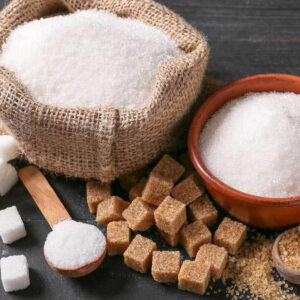Checking Out the Distinctions being used and Benefits In Between Beet Sugar Vs Cane Sugar
In the culinary world, the selection between beet sugar and cane sugar is not merely concerning sweetness but entails a nuanced consideration of taste, application, and impact. While both sugars come from various plants, each undertakes one-of-a-kind production procedures that subtly influence their attributes and viability for different dishes. As cooks and customers progressively focus on both the environmental and flavor accounts of their ingredients, comprehending these distinctions becomes critical. This exploration uses understanding into exactly how each sugar kind can best improve cooking creations.
Beginnings and Production Processes of Beet and Cane Sugar

Walking cane sugar, on the various other hand, originates from the sugarcane plant, an exotic yard belonging to Southeast Asia and now cultivated in tropical zones worldwide. The manufacturing of cane sugar begins with the harvesting of cane stalks, which are squashed to launch the juice. This juice is then boiled to focus it, after which it is rotated in centrifuges to generate raw sugar crystals. These crystals are additional improved to generate the white sugar commonly readily available in stores.

Nutritional Content and Wellness Considerations

When contrasting the nutritional material of beet sugar and cane sugar, it comes to be apparent that both types essentially provide the exact same calorie worths, with about 16 calories per tsp and no considerable nutrient diversity. Both sugars, when consumed in excess, can contribute to elevated blood sugar levels, a danger aspect for diabetic issues and other metabolic conditions. From a health and wellness point of view, regulating intake of any type of sugar, whether from beet or cane, is recommended to prevent these possible adverse effects on well-being.
Flavor Profiles and Culinary Applications
Despite their comparable chemical structures, beet sugar and cane sugar vary subtly in taste, which can influence their usage in different cooking contexts. Walking cane sugar usually brings a tip of molasses, even in its polished type, offering a warm, caramel-like touch that enhances baked items, coffee, and chocolate-based dishes. On the other hand, beet sugar is defined by its highly fine-tuned, neutral taste, making it a functional sweetener that does not modify the flavor profiles of recipes.
Environmental Influence and Sustainability
While both beet and cane sugars are acquired from plants, their ecological effects vary considerably as a result of the distinct approaches of cultivation and processing needed this content for each. Sugar beet farming commonly involves comprehensive automation, which can increase fossil gas intake and carbon emissions. Nevertheless, beetroots can be grown in cooler climates and call for much less irrigation, possibly reducing water usage contrasted to sugarcane. Sugarcane, on the various other hand, is typically grown in tropical areas where it counts greatly on watering and a longer growing duration, increasing its water footprint.
Furthermore, the processing of sugarcane frequently creates a considerable quantity of waste, including bagasse, which, although usable as biofuel, often adds to air pollution if burned inefficiently. Sugar beet processing uses you could look here more of the raw materials, resulting in less waste. Both industries encounter obstacles in lowering their ecological footprints, but recurring advancements in agricultural practices and waste administration are aiming to boost sustainability.
Economic Variables Influencing the Sugar Sector
The financial dynamics of the sugar market are significantly affected by global market demands and trade policies. Elements such as tolls, subsidies, and global profession contracts play critical duties in forming the competitive landscape. For instance, in areas where sugarcane or sugar beet production is subsidized, manufacturers may have an economic advantage that allows them to supply lower rates on the global market. This can produce differences in success and market accessibility for producers in nations without such subsidies.
Additionally, fluctuations in global demand for sugar, influenced by dietary trends and industrial use in food, straight influence rates and manufacturing degrees. beet sugar vs cane sugar. Climate problems additionally play a crucial duty, as they can significantly affect crop yields and, consequently, the supply chain. This irregularity presents a degree of economic uncertainty that can lead to financial investment volatility in sugar manufacturing fields, influencing choices from growing to market method
Final Thought
In conclusion, both beet and cane sugar have one-of-a-kind high qualities that suit different culinary requirements. While cane sugar conveys an abundant flavor perfect for improving baked resource items, beet sugar's neutrality is excellent for lighter dishes.